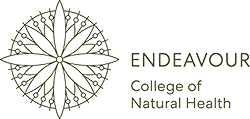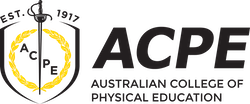Health Science Courses
Discover health science courses that prepare you for a rewarding healthcare career. Learn anatomy, public health, and more. Start your journey in health science today!
Discover health science courses that prepare you for a rewarding healthcare career. Learn anatomy, public health, and more. Start your journey in health science today!
Try our navigator tool and find the right Health Science course.
Start HereContribute to a healthier and happier society with Endeavour’s Diploma of Health Science. In addition to gaining foundational knowledge of biological and social sciences, our one-year full time (two years part-time) course gives you the opportunity to...


The Bachelor of Health Science (Exercise) offers the perfect career path for those looking to enhance their knowledge and skills through further studies in physiotherapy, exercise physiology, and other health professions. You will come to understand ho...


A Higher Education course to identify you as an expert in the dynamic and evolving field of Dermal Therapy. This qualification will help you accelerate your career by giving you a solid foundation in Dermal Therapy and is also your first step towards a...


A Higher Education course to identify you as an expert in the exciting and innovative field of Clinical Aesthetics. This Bachelor Degree equips you with an advanced level of knowledge and the skills to combine science with clinical practice, giving you...


Clinical nutritionists integrate traditional food wisdom and current scientific evidence to motivate individuals and communities to eat well and live healthier lives. The Bachelor of Health Science (Clinical Nutrition) is supported by a strong underpin...


Acupuncture is a branch of Chinese Medicine that stimulates specific points on the body to regulate the flow of Qi (vital energy) to restore health and balance the functions of the body, mind and spirit. Acupuncture therapies combines Chinese medicine...


Naturopathy is a whole medical system combining theory (philosophy and principles) and practise that uses an array of natural therapies to support healing and maintain health. Naturopaths aim to treat the underlying causes of illness and disease. The c...


Chinese medicine is a whole medical system that seeks to balance the functions of the body, mind and spirit and restore health. It combines theory (philosophies and principles) and practices including acupuncture, moxibustion, medical Qi Gong, Chinese...


Try our navigator tool and find the right Health Science course.
Start HereThe field of health sciences is made up of a wide variety of disciplines, each of which uses scientific knowledge to treat, maintain and improve a patient’s overall health.
This innovative industry can include traditional, conventional and alternative medicine and involves looking at societal, bio-medical, organisational and even psycho-social aspects of health. In other words, health science is all about treating the entire person rather than just their symptoms.
The following disciplines are all considered to be part of Health Science:
Australia’s healthcare and social assistance industry–of which the health sciences is a central part–has grown dramatically in recent years and now employs more than 1.5 million people across the country. This includes over 10,000 acupuncturists, 7,500 nutritionists, and 7,700 recreational therapists.
Australia’s health sciences professionals work in both the public and private sectors; including hospitals, aged care facilities and community health centres. Shifts tend to involve evening and weekend work.
The rate of pay in health sciences varies dramatically depending upon the role; for example, recreational therapists earn around $47,136, naturopaths bring home $60,178, and nutritionists make an average of $68,448.
Any successful career in health sciences starts with a quality education. Whether you’re searching for a certificate level program in Sydney, a Diploma of Health Science in Perth, or Bachelor of Health Science distance education programs, there’s a wide selection available to suit everyone.
If you’re looking for a basic introduction to the industry, investing in a certificate level course is a fantastic option. A Certificate IV in Health Science, for example, covers topics ranging from physiology, chemistry, anatomy, and microbiology. It also involves more technical training in areas like infection control practices as well as the many sociological aspects of health in modern society. You will also enhance your skills in communication, problem-solving, and critical thinking, while developing your knowledge of the health care system as a whole.
A Diploma of Health Science programs tackle topics ranging from genetics and psychology to cell tissue regulation and examines the many ways in which a person’s environment can impact their physical, mental and emotional health. Statistics, research methodology and professional communications are also covered, and you’ll get trained in the art of dealing with people from a diversity of backgrounds. Graduates will emerge ready for a wide range of health science jobs, such as allied health worker, environmental scientist, pathology technician, laboratory assistant, and OH&S practitioner.
If you have skills, knowledge and experience already and are looking to broaden your horizons, consider investing in a Bachelor of Health Science. Here you’ll look at the social, political, economic, behavioural, and environmental aspects of health and focus in on the science impacting a specialty field of interest; for example, a Bachelor of Health Science (Nutritional Medicine) will concentrate on the science behind good nutrition. Best of all, you will find a vast array of opportunities waiting for you once you graduate, including roles in policy making, procurement, case management, public relations and healthcare promotion.
Every program advertised through TAFE has been designed to meet or exceed industry standards, so whether you take a short certificate, an in-class Bachelor program, or a Diploma of Health Science online, you can count on getting the tools you need to thrive.
You won’t find many more future-proof careers than those in the health sciences, after all, not only is healthcare now Australia’s largest industry employer but state and federal health spending has increased by 74% over the past ten years.
With 15% of Australians now aged 65 or over and the population expected to hit 40 million by the year 2050; Australia’s healthcare needs have never been greater. As a result, health science professionals can expect to find plenty of opportunities for years to come.
To thrive in the health sciences, you need to have a genuine interest in helping people as well as a firm belief in the value of treating the entire person. A mind for science is a must; an optimistic attitude is essential, and having a knack for dealing with people from a variety of backgrounds will certainly help.
The following skills will also be required:
Think you have what it takes to thrive in Australia’s Health Sciences industry? If so, there has never been a better time to jump on board. Start by comparing your many great course options here at tafecourses.com.au, find the one that ticks all your boxes, and sign up today!
Some allied health careers begin and end in the clinic, but that’s not for everyone. And it can be h...
Health sciences is a broad and multifaceted discipline with a host of fulfilling careers covering bo...



We’ll email you updates on job trends, career advice, study tips, news and more.